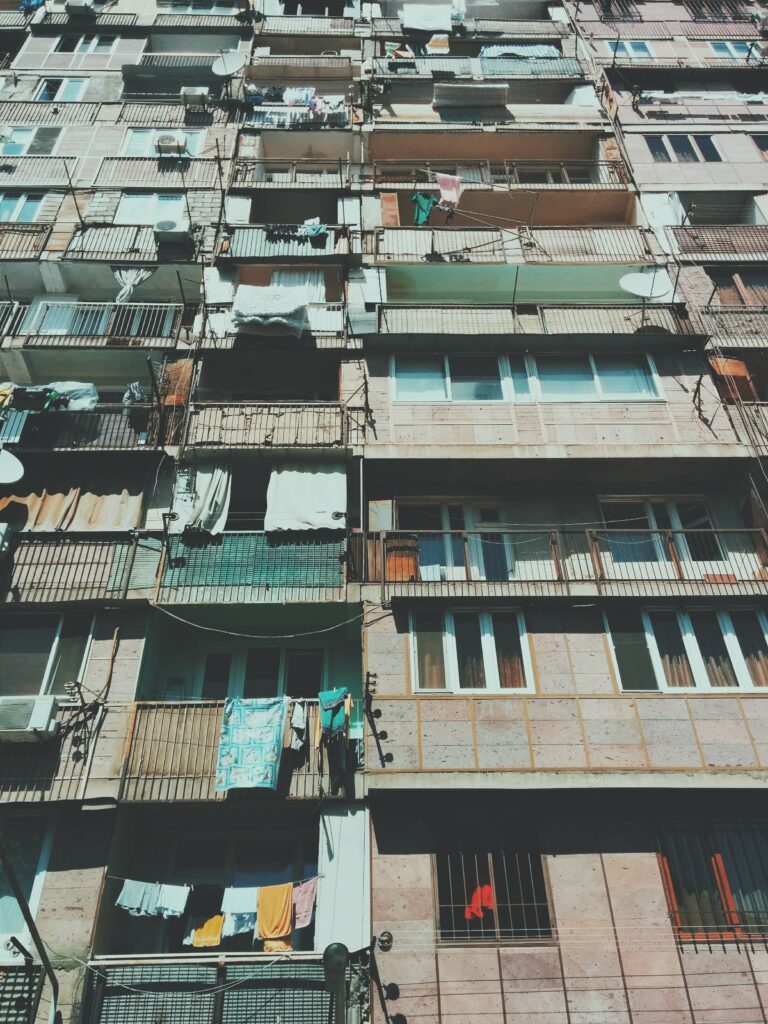SHARE
INFO
- DATE: 07-05-2020
- PLACE: Turin
COUNTRY OF PROVENANCE

Italy
RELATED ARTICLES

Living in a housing emergency, the story of a Romanian family
Mom, dad and two daughters, one 17 and 20 years old already married with a child, living on a single-income. They arrived to Milan from rural Romania and found themselves homeless.

Massimo and his experience as a psychologist in the COVID19 emergency
Sharing with others what you experience often serves to make sense of the experience itself. Massimo tells what he lived during the COVID19 emergency in the hospital.

Cesare called Tony and the citizenship challenge
Cesare called himself Tony. He is Mexican, but also Italian. He tries to get the citizenship despite his father – the great absent – is Italian.
Anna, her work in social housing
Anna, who works in close contact with people who are in emergency housing situations, in this period can only work from home and, moreover, entered the layoffs. While before she wandered around Turin and the province and entered people’s homes, today she struggles with phone calls and reports.
Anna coordinates the educators who accompany the families or individuals who find themselves in a housing emergency. Who can be in a housing emergency? Who is subjected to an eviction because, for example, has lost his job and is unable to pay a rent; who has lost all gambling money; who is an immigrant and lives below the threshold of 30 euros per day and has many children … but also single men forced to live in the car, Italian families – perhaps numerous – that count on a single income.
There are ranges that define the seriousness of the situation. The medium degree of fragility range, where you hope to accompany people in taking part in calls for rents at a low price. In these cases, people find themselves in limbo: they are too rich for a public housing and too poor for a rent on the free market. Then there is the high degree of fragility range, which is the most common, where, often, there is no other solution than a popular house.
Social housing
By social housing we mean a sort of housing agency that gives information to people towards living: agreed rents, calls to access, home searches and even job offers.
The possibility of hospitality accommodation for users in a “high degree of fragility”, however, are mostly of the maximum duration of one year according to the different agreements with the Municipalities of reference. However experience shows that at least 2 years are needed for families to “rise” from the emergency and create a bond of trust with their educator.
In addition, the housing emergency usually affects mothers and children, so fathers are out and this is a great inconvenience, they are already so fragile and then divided. Mum and children from one group are share the apartment with mum and children from another group.
The educator usually visits the family on a weekly basis in addition to constant telephone availability. He/she supports families in various areas such as looking for work, understanding the home economy, keeping the house (order and cleaning) …
The situation in the time of the coronavirus
Now with COVID19 everything is paradoxical, says Anna. Everything stopped: the evictions, the insertions, those who had public housing and were moving to a new house were stuck. There is a great deal of relationships that continues on the phone with social workers, but it seems not enough.
By now almost all the people who are in a housing emergency are in layoffs, wages are not being paid, and people can’t even pay those agreed rents … but the joke is that the same educators are in layoffs! The salaries of those who work in the social sector are already and they risk ending up themselves in the nightmare of “not reaching the end of the month”.
There is therefore a more important operator effort than usual, they risk finding themselves in situations of extreme closeness to users and today as ever.
State aid
The bulk of the educators’ work today is on income support measures put in place by municipalities, regions and the state. These measures mainly cover those who lose their jobs due to COVID; the families of those who died as a result of COVID, or who have a mortgage in place. However, these are a small part of the population in situations of extreme housing and economic hardship that has populated the outskirts of the Turin hinterland since well before the health emergency. And those people who do not get paid, but haven’t been laid off?
Furthermore, it is to be considered that many users are unable to attach a file to an email and today all procedures are exclusively electronically. Educators explain everything over the phone, but usually people do not even have a pc.
Institutions forget that a large portion of the population does not have access to the online world.

